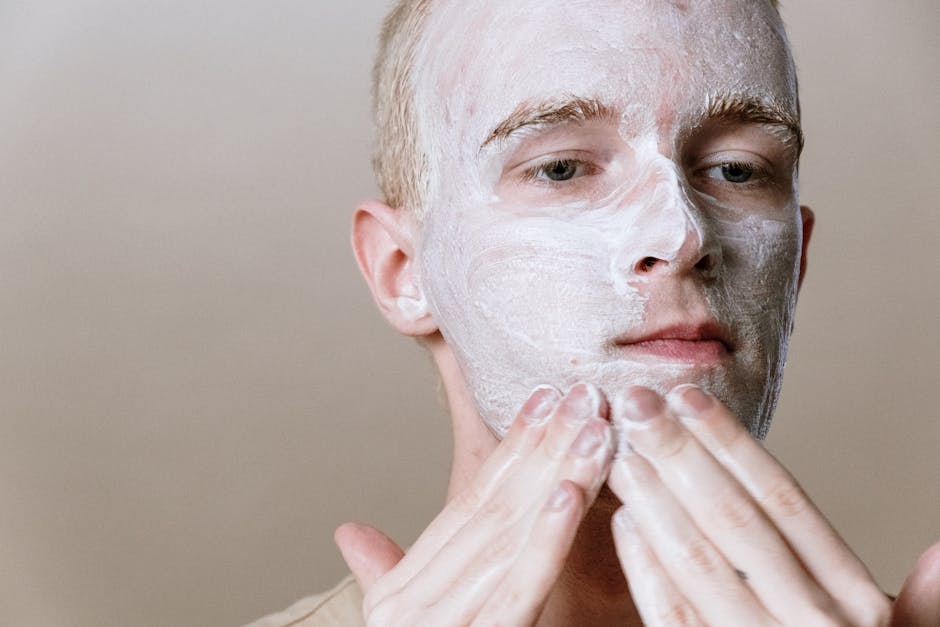Clear Skin: Achieving A Radiant Complexion
Skin health is often reflected in its clarity and radiance. Achieving clear skin is a common goal for many, as it signifies vitality and overall well-being. While genetics play a role in skin appearance, there are several proactive measures you can take to enhance your skin's health and promote a clear complexion.
**1. Cleansing Regularly**
A fundamental step in maintaining clear skin is regular cleansing. Use a gentle cleanser that suits your skin type and removes dirt, oil, and makeup without stripping the skin of its natural oils. Avoid harsh scrubs or excessive cleansing, as they can irritate the skin and disrupt its delicate pH balance.
**2. Exfoliation for Cellular Turnover**
Exfoliation is an essential process that helps remove dead skin cells and promote cellular turnover. Regular exfoliation allows new, healthier skin cells to surface, resulting in a smoother, brighter complexion. Choose an exfoliator that is appropriate for your skin type and use it 1-2 times per week.
**3. Hydration: Moisturizing for Balance**
Hydration is crucial for maintaining clear skin. When the skin is properly hydrated, it is less prone to dryness, flaking, and irritation. Choose a moisturizer that is oil-free if you have oily skin or a richer moisturizer if you have dry skin. Apply moisturizer twice a day, after cleansing and before bedtime.
**4. Sun Protection: Shielding from Damage**
Exposure to the sun's ultraviolet (UV) rays can damage the skin, leading to wrinkles, age spots, and skin cancer. Protect your skin by wearing sunscreen with an SPF of 30 or higher every day, even on cloudy days. Reapply sunscreen every two hours or more often if swimming or sweating heavily.
**5. Balanced Diet: Nourishing from Within**
A healthy diet plays a significant role in skin health. Focus on consuming plenty of fruits, vegetables, and whole grains, which are rich in antioxidants and nutrients that support skin cell regeneration and protect against damage. Limit processed foods, sugary drinks, and excessive alcohol consumption, as these can contribute to inflammation and skin issues.
**6. Quality Sleep: Promoting Skin Repair**
Getting enough restful sleep is essential for clear skin. During sleep, the body repairs itself, including the skin. Aim for 7-9 hours of quality sleep each night to allow the skin to regenerate and restore its radiance.
**7. Stress Management: Reducing Skin Inflammation**
Stress can trigger hormonal imbalances and inflammation, which can lead to skin problems such as acne and eczema. Find healthy ways to manage stress, such as exercise, yoga, meditation, or spending time in nature.
**8. Seeking Professional Help: Addressing Underlying Issues**
If you struggle with persistent skin concerns that do not respond to home care, consider seeking professional help from a dermatologist. A dermatologist can diagnose underlying skin conditions and recommend appropriate treatments to improve skin health and achieve a clear complexion.
**Personal Experience: My Journey to Clear Skin**
For years, I battled with acne and uneven skin tone. Despite trying numerous over-the-counter products and home remedies, I found little improvement. Finally, I decided to consult a dermatologist. After a thorough evaluation, I was diagnosed with hormonal acne and prescribed a topical medication. With consistent use and a dedicated skincare routine, my skin gradually transformed. The acne subsided, the dark spots faded, and I achieved a clearer, more radiant complexion.


